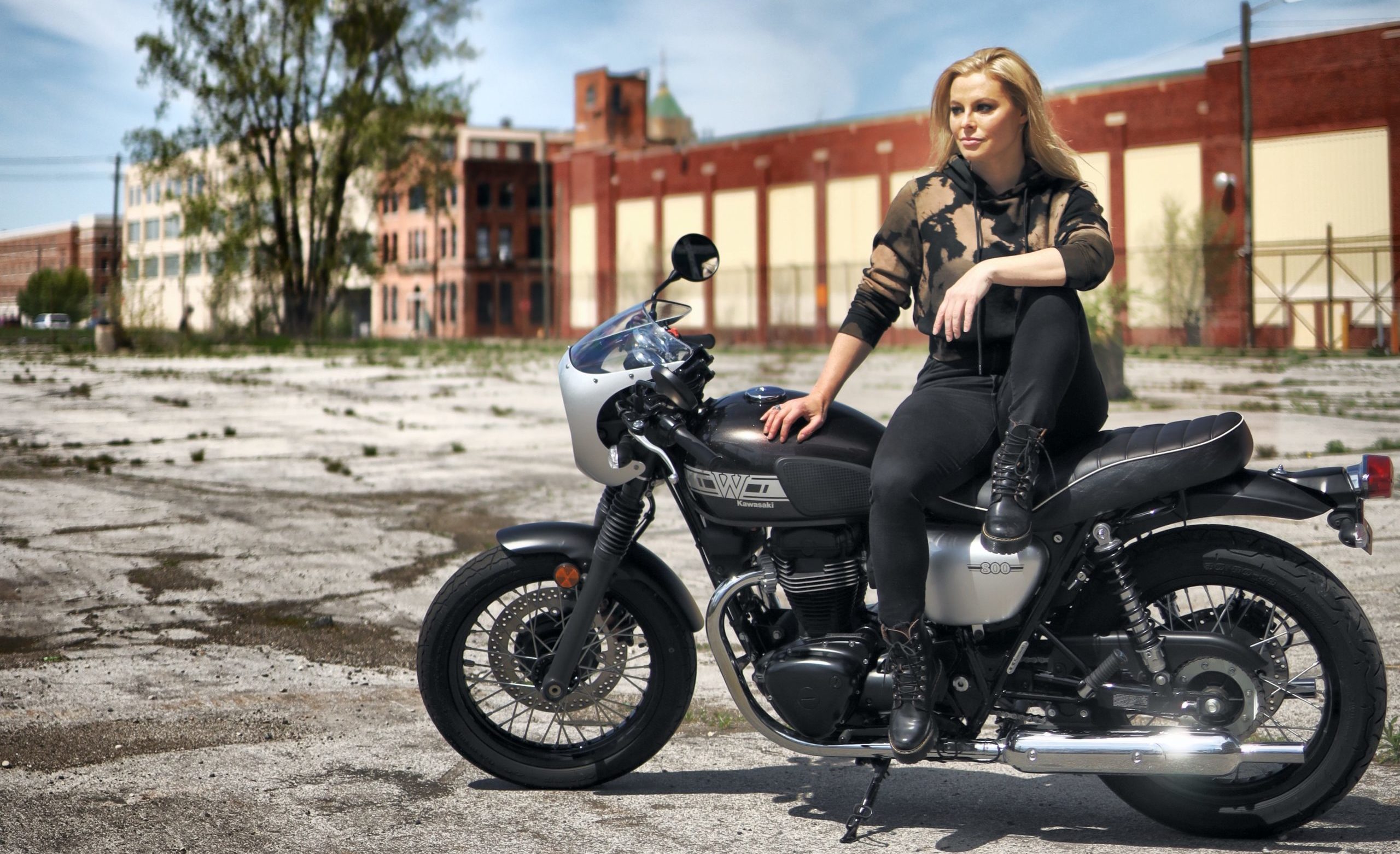
Cristy Lee | TV Personality, Business Woman, Rider
She’s known for her love of riding. But before she took on the road as a motorcycle sensation, Cristy was a multi faceted entrepreneur. From real estate investments in Detroit, to hosting radio shows at the creek of dawn, she has really diversified her portfolio on living life. With a TV show launching this Fall, and so many ins and outs of her career she really is fascinating character to follow. Here’s our interview with the one, the only Cristy Lee.
I want to start with your journey before you got into television and entertainment. What drove you towards this path?
I’ve always been the person who’s been interested in a lot of different things. I’ve probably changed my “career path” more times than I can count when I was younger in middle school, high school, and even college. I’ve always been a hard worker and I’ve always held lots of different jobs so I was always good at juggling different things. That’s something that carried through high school and college as well, having multiple different jobs and working in different fields. When I graduated high school, moving into college trying to figure out what my career path is going to be, I went from everything from being a cosmetologist and a makeup artist to going into the radiology program at Halifax medical centre. I was all over the place. I was always in dance, so being in the entertainment industry in some capacity was always of interest to me. I bounced all over the place. In 2005, I left everything. I’m from Daytona Beach originally. I left everything and moved to Detroit, Michigan, to invest in real estate. It was a huge change both personally and professionally. I basically ran my own real estate investment company.
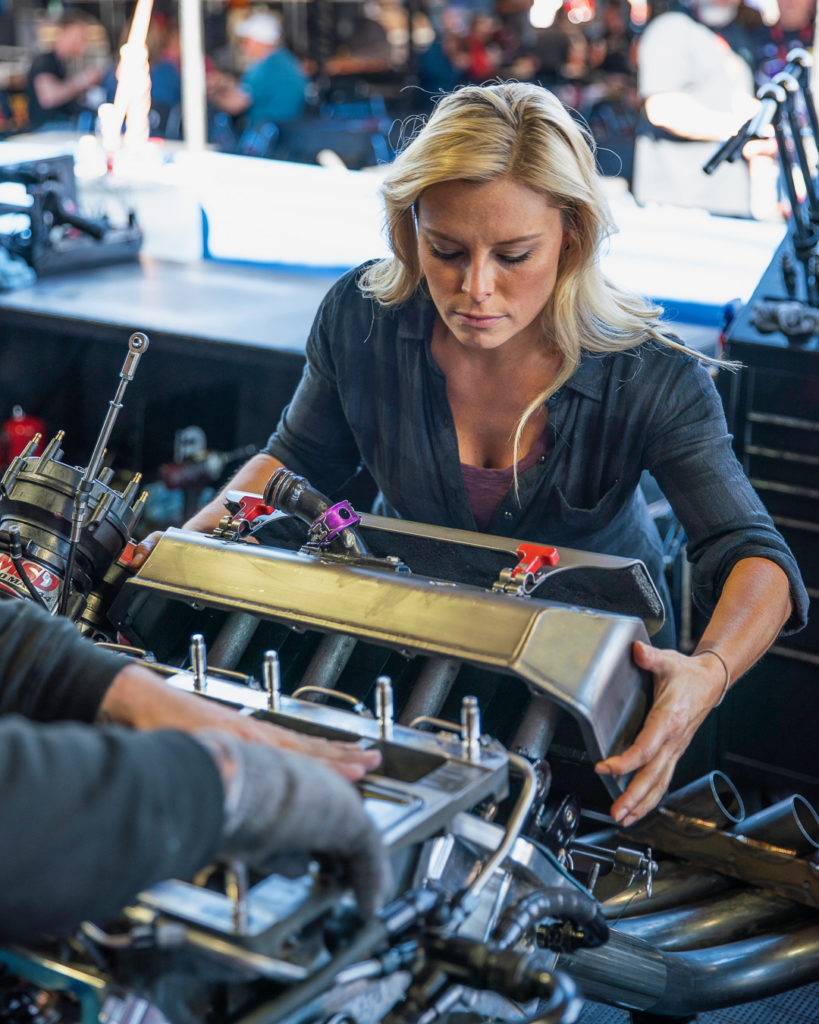
Why Detroit?
Cristy: I was a native Floridian my entire life, so moving to Detroit, which has frigid winters, was a huge change. Detroit, at the time, in the early 2000s had a huge wave of real estate investors coming into the city because there’s a lot of property and real estate available. I can’t speak so much about my knowledge of the city and the real estate property value now, but then, there was a strong return on your investment. You could purchase a property for close to nothing. I was purchasing homes 7000 or 6000 dollars, and turning them and selling them for sixty or seventy grand. It was more about creating affordable, clean, functional, quick housing for people in the city than creating these luxurious, highly designed types of homes. That’s not what the city needed.
Were you self taught? Did you have mentors? What developed your real estate savviness.
I had some family members that were interested in real estate investing. I honestly think that someone attended one of those “Get Rich Quick” seminars or something along the lines of that, and I’ve always had an interest in real estate. Making the jump to dive into that and not even with the mainframe of getting rich quick, but being able to make money successfully from the business without having a very extreme education, if that makes sense. I would never discourage someone from attending school. I did two years in community college. I got my associates in arts degree, which is basically useless, but I did it. I was always in school and upper-level education. I had college credits while I was in high school. I was able to graduate early. Going to college and school was too structured for me. It just didn’t work for me. I had no interest in going off to a four-year university or spending six-plus years in college to get a medical degree. It wasn’t for me. I think it works great for other people, though. I wanted to find ways to create financial freedom and stability without having to have that paper with a bachelors degree. I’m an all or nothing person. That’s a good way to describe me professionally because I’m going to be all in no matter what I’m doing. I’ve lost everything plenty of times. When you have failures, I think that it creates a stronger version of you to build up and be better for the next round, whatever that looks like.
Where to next?
I’ve mentioned that I’ve been very active in dance my whole life. I’ve been on all sorts of dance teams, troupes, and competitive teams. When I moved to Detroit, I was interested in pursuing dance in any way that I could. I wouldn’t say that there’s this booming entertainment industry in Detroit. I probably would have been better off moving to New York or Los Angeles if I was that passionate about it, however, it is so competitive and I knew that I didn’t have the background training to be good enough. In Detroit, there were auditions for the Detroit pistons dance team for the NBA. I made the dance team in 2006. I started dancing for the NBA, and then I danced for the major indoor soccer league called Ignition in Detroit as well. I started working local dance gigs. I had a production company that I worked for and co-managed. It basically did entertainment for the local casinos in Detroit. I want to say they were like Vegas-style shows, but in Detroit. I performed with that production company for years, and I also co-managed it. We staffed talent at the four major casinos in Metro Detroit. One was at Caesars, Windsor, which is just across the border to Canada but is essential just like Detroit. We had dancers, weekly performances, choreographers. I did all the wardrobe for that. We also staffed MCs and promotional models at the casinos. I worked as an MC at the casino doing big cash drawings and giveaways, which is how I gained my chops doing microphone work. I did that for seven years. I was pretty good at it. Soon after I started that, I actually auditioned to be a spokesperson for a local rock radio station in Detroit. It was a contest and I won it. It was such a fun experience, and everyone was so into it. I can’t deny the competitiveness of it, though. It was a month-long audition process, kind of like America’s Top Model. Every two weeks we would have a round of voting and they would narrow it down from the top thirty to the top sixteen to the top ten to the top three and so on. That gig included a one-year stint as the radio station’s spokesperson and also as the official on-air traffic reporter during the afternoon drive. Detroit is top fifteen in the radio market, so it was a big opportunity to sit behind a microphone at a relatively prestigious platform as someone who had no experience whatsoever in radio. I upped the ante, and instead of doing traffic every day, I did traffic, sports, and weather. That segued into me applying to be the in-arena hostess for the Detroit redwing for NHL. I held that position for a few years, and that was my first role with a microphone in front of a camera with a live capacity.
How was that transition? I would love to know your experience given that you were in a recording studio and now you’re doing the live thing.
Everybody makes the joke about a face for radio, and as soon as I joined the radio station they were like, “you don’t have a face for radio.” I never really understood that, but radio was such an awesome experience for me because I loved the people that I worked with, and I think it was a great way to start a broadcasting career because it gave me a great appreciation for every opportunity that I had after that. There weren’t any silver platters. Anybody that was in the radio industry was incredibly passionate about it. Nobody was there because they were looking for a great paycheck or they were the next big hit. It was passion. That foundation and work environment were really strong, and I’m glad that that’s where I got to start. I’m grateful for my time there. It was really hard for me to leave that job. I stayed with the radio station for four years. They offered me an air shift of my own after my one-year spokesperson term, which was the graveyard shift on Monday mornings from 12:30 am until 5:30 am. It was mine. I had it once a week. I was proud of that. Transitioning from being in-studio behind a microphone where no one’s watching to in an arena where there’s twenty-five thousand fans screaming and your face is on the jumbotron and a live camera staring at you, and the live echo of your voice in the arena. It’s a huge transition. I probably learned the demos in my career in the short amount of time that I was with the redwings. I was with them for three or four years. I learned so much. That was basically the beginning of my on-camera career.
What are some of the things that resonated and stuck with you?
In my first season, they actually hired me to be the host during the playoffs. I started during the NHL Stanley Cup playoffs. It was insane. That year, we went all the way to the finals. It was gut-wrenching to watch the Pittsburg Penguins and Cindy Crosby hoist the cup up in our Arena. That experience was amazing. It was also terrifying. To this day, that was the most challenging and stressful and demanding jobs I’ve ever had, just because of the level of expectations that were put on me as the arena host in a live setting. The expectations were incredibly high, especially for my experience level.
Were there moments you had to think fast and make quick decisions?
I was always on. We had a producer that would stay with me for the night. We had scheduled breaks. During intermissions, I had different interviews scheduled and lined up. One of my very first interviews was with a Nascar driver (Bryan Kasalowski). I was so insanely nervous because, at the time, it was the most prestigious interview I could have done. It was experiences like that that really taught me to self-analyze and know what I needed to work on and improve on. There’s always room for improvement. Complacency is not for me. As far as the on-camera stuff now, it’s a little bit more second nature to me now. My constructive criticism towards myself has shifted to later years, where now I’m not as critical of what I’m doing, saying, or how I’m acting on camera. I’ve my criticism onto the logistics and administrative side rather than the on-camera stuff.
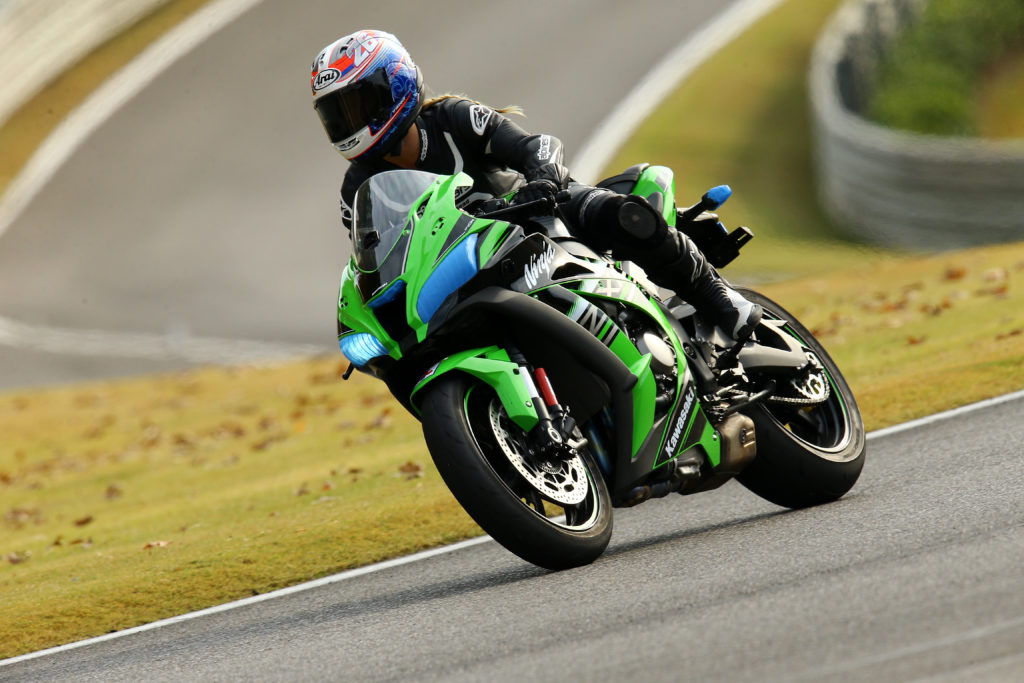
From that transition, you continued on into the love cars?
My dad was a shop owner and a mechanic. I grew up in Daytona Beach, which has a heavy, Nascar racing influence. That kind of stuff was always around. Anything with an engine that goes fast. That was always something that I was interested in. I was the kid that was begging my dad for a shifter car when I was eight years old. Cars and motorsports were always a huge pastime for me. Moving later into life, when I was in high school because I lived near Daytona, a lot of my friends rode motorcycles, I became very interested in the motorcycle scene. I bought my first bike when I was eighteen. Motorcycles are how I got bitten by the bug. That’s a waterfall effect. You fix your janky eBay bike with small things like oil changes and I needed all the help I could get with maintenance. You learn from other people. The streets start to become a little boring, so you go on the race track. Then, you take your bike on the track, and there are thing you need to do to a street bike to modify it to make it better on the track. I started building a track bike and you really start working on the bike more from that point. Us track racers are more nonchalant about crashing because it’s really a big part of it.
I would love to know the feeling of being on the road. I’ve never heard it from a women’s perspective.
I’ve been riding since I was eighteen. It’s a huge part of my life. I can’t imagine my life without bikes. Riding has been interesting for me as a woman in the motorcycle industry over the years and how much I’ve seen it progress. When I first started riding, I was a passenger. I was meeting someone who had a bike. That’s what all the girls who came on motorcycles at the time did. I barely knew anyone who had their own bikes. They were few and far between. I actually got into an accident on the street as a passenger. Of course, after having a pretty big spill on the street and wearing horrible gear and not taking care of myself, the smart thing to do would be to get your own motorcycle. I felt like I was in control. I had the interest to get a bike for sure. There weren’t a lot of female riders. At the time, there wasn’t really anything that was available to women really. There weren’t any small displacement bikes. I’m petite. I’m 5 foot 2. Riding a full-size sports bike is a challenge for me because I’m basically a garden gnome. They didn’t make bikes for petite people because they were selling bikes to the average-sized man. It was the same thing for gear. There was no gear for women. What little gear there was for women, everything had pink butterflies and flowers on it. It was terrible just trying to find a helmet that didn’t have flowers on it. I know so few women who are into that style anyways. Finding gear and equipment and a motorcycle that I could ride was a big challenge, but now, there’s this huge wave of female riders. I feel like there are so many bikes that support that. The motorcycle industry was starting to see that it was an untapped resource. Women are like the number one household spenders. If anyone’s going to go out and buy something, it’s probably going to be a woman. If she wants to go buy a motorcycle, then she’s going to buy a motorcycle. I don’t think women waffle on decisions like that.
Nowadays, there are just a plethora of machines available for different manufacturers. A few manufacturers over the past five to seven years started to shine in what would be considered a more female conducive segment with the models they were producing. Now it became competitive. It was actually a competitive market for these more female-desirable machines, and what the offering is from each manufacturer. Now, gear and equipment availability is there. There are also support groups for women in motorcycling.
Having women behind the scenes as active decision-makers in the industry makes a huge difference too. It’s hard to deny that you flashback years ago and everyone that worked in the motorcycle industry was male. Now, because there have been so many team players that are female behind the scenes, things like that are happening. Having someplace to put your purse in your high-end luxury car would make a huge difference to a female buyer for a high-end car like that. Those decisions are being made behind the scenes by other influencers.
No offence to the boys, but I highly doubt that some man stood up in front of the board with a presentation on where to put the purse in the car. I don’t expect them to think of something like that because they don’t have a purse.
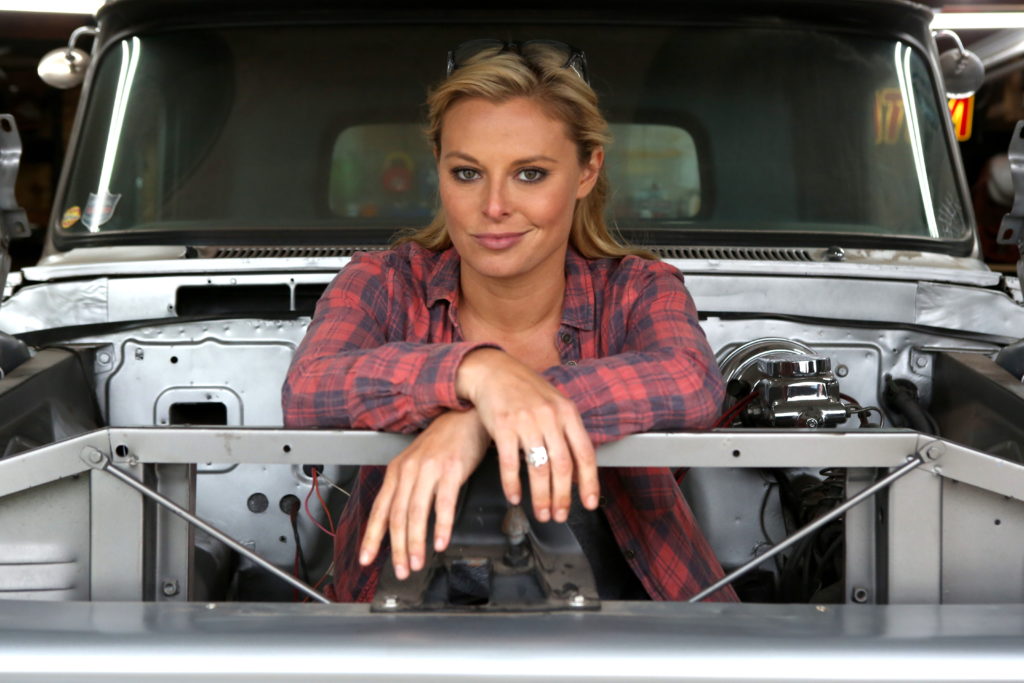
Bring me into the next chapter of your life. Motorcycling and writing is a big part of your life, and so is entertainment and being a TV personality. You’ve brought that all together in your brand. How do they come together?
I was doing the sports stuff and the casino stuff on camera. Motor-sports and motorcycle specifically being such a huge interest to me. Back when YouTube was the only digital platform out there for content. I reached out to a company that was going around and doing interviews at the race track with professional motorcycle racers and hit them up and was like, “Hey you guys are great, but you’d be better with me.” They gave me a shot, and I went to the race track with them. They paid me three dollars and I got a free sandwich. I went out and I did interviews. They also asked me to write this story, so I did a whole video piece on the history of motorcycle racing. That was one of my first produced videos. I was pretty good at it so I reached out to the company and did this whole proposal. The motorcycle racing organization was AMA pro-racing at the time, the American SuperBike Racing Series was also sanctioned by ISC, which is what sanctions Nascar. It is home-based in Daytona. The guy who was the marketing media manager of AMA pro-racing was also someone that my mother taught in first grade. He just happened to be the media person at this road racing organization that I wanted to work for. I hit him up and sent a proposal to him. I hired a camera guy and we would go out every race weekend. The first season that we went was 2012. There were fourteen rounds of racing across the nation. We would go out each weekend and put out YouTube videos. We started doing sponsor videos. We were pumping up the series sponsors and doing on-track footage and other cool shit. That’s how I started forming a career.
The next step for me was to get face time with people who work at the production trailer for the TV network. I started making friends with the speed TV people and then I got a job with speed TV because I made myself visible. I knew who to talk to. I made my name known.
How did you think to talk to those certain people?
I never give anybody too much credit for thinking of me, if that makes sense. My brand has been successful because I never assume that I will be on top of mine. If I want something, I will make myself go to the top. Confidence comes with that too. I had no problem reaching out to companies and soliciting my brand and getting exposure and talking to the right people. Networking is huge. I had no problem doing any of that just to get ahead and get bigger opportunities. I have not sat back at all in my career and waited for anything to come to me. I’m incredibly grateful that where I’m at now with my brand, I have earned the ability to sit back a little bit more and not have to do so much work. People come to me now because I’ve built a strong brand. I was doing cold e-mails left and right. Anybody and everybody. I was taking anything that I saw that could be an opportunity that could get me more exposure and more camera time and more experience. Perception is everything. I did some bad production shots when I was just starting. I was shooting in a parking lot covering whatever sports series. I’ll never forget how I did something that covered local skateboarding. I went out there with a camera and I did it. I had that on my resume. I beefed that up when I tried to get a job. Never giving anybody in the entertainment industry too much credit for thinking of me. I think about someone who’s a decision-maker at a production company or at a television network. Their time is valuable. These people aren’t sitting and stewing over who to put in a position as an on-camera personality for weeks. They’re getting a shortlist together and are gonna make that happen. They’re going to start with their top choice and then work their way down. I needed to just be on that list. I’ve had plenty of opportunities and plenty of jobs that I have been part of that I know I was their first choice. I had plenty where I know that I was not the first choice. I had jobs where they told me I wasn’t their first choice — those are always fun. Who cares, though? I’m still there.
In your vision of where you see yourself going, what would be something you have set out in the near future?
It’s so hard to say because everything that I’ve planned for hasn’t happened. It happened in a different way than I planned. I thrive on living in the moment. I just focus on what I’ve got going on now, and my long-term plan doesn’t exist.
Celebrity IOU is a show that I’m working on. It’s very similar to the property brother’s show Celebrity IOU that was seen on HGTV. It’s produced by Scott Brothers Entertainment. Our show is called Celebrity IOU Joyride. We are working with celebs to give back to someone that was really special in their lives. It’s not about working with a high profile celebrity who obviously is financially savvy. We’re working with a celeb who is also a person who has a personal life who has ups and downs in their life and their career. There may have been a person or multiple people who were special to them in some way in their lives, professionally or personally. They want to give back to that person and we’re helping facilitate giving back by building a custom car for them, using the inspiration from the celebrity to build this. We never get to meet the celeb’s special person, it’s a surprise gift, but we work with the celeb to get to know this person and build these cars based on them. There has been lots of happiness and tears and great stories. That show is going to air on Discovery Plus in August. I’m still really active in the automotive industry and the motorcycle industry, and really involved in lots of different projects.
Looking back on your journey, what is some advice that you would give yourself at the beginning before you started your radio show?
My best advice to myself that would also be advice to other people is the thing that got the best of me over the years was taking on too much. I burned out too quickly if that makes sense. Honestly, even up until two years ago, I found a way to make everything work. In 2019, I was hosting three shows. I was on the road probably thirty weeks out of the year. I was doing crazy stuff, like going to four different cities on a road trip. I combined a shoot in Florida for this show and then would double up for an event that weekend while I was there. In the following week, I’d have another shoot somewhere else, so I’d fly there. I did that all the time. I was just putting as much as I possibly could on my plate. It was incredibly rare for me to say no to everything. I was really good at making everything work somehow, and fighting to make it work. It was great because it helped me build to the point I’m at now, but looking back, I would tell myself and anybody breaking into the industry that sometimes too much isn’t best. Quantity isn’t better than quality sometimes. I’m super burned out on travelling now because I’ve been doing so much of it for so many years. Honestly, last year being on lockdown for two months was something I’ve energy had before. A lot of people were going stir-crazy at home. I was not. It was amazing. I think that gave me a taste of what my life could be like if I wasn’t gone all the time. Now I’m actively working to have more of that. We wrapped production on the Celebrity IOU show. I was back and forth to California more times than I can count in the past four months, but now that I’m done, I didn’t put too much on my schedule in June intentionally. I needed some time to decompress and not jump right into another process and start filming again.
I would love to know if you figured out how to balance everything?
If there are cliff notes for that, please send them to me. I love what I do and I’m naturally a driven person. I aspire for more because I want to be the best I want to be. I wish I could sit here and say that I’m in it for the fame, but I’m not that person.
Photo Credit – Publicis Group
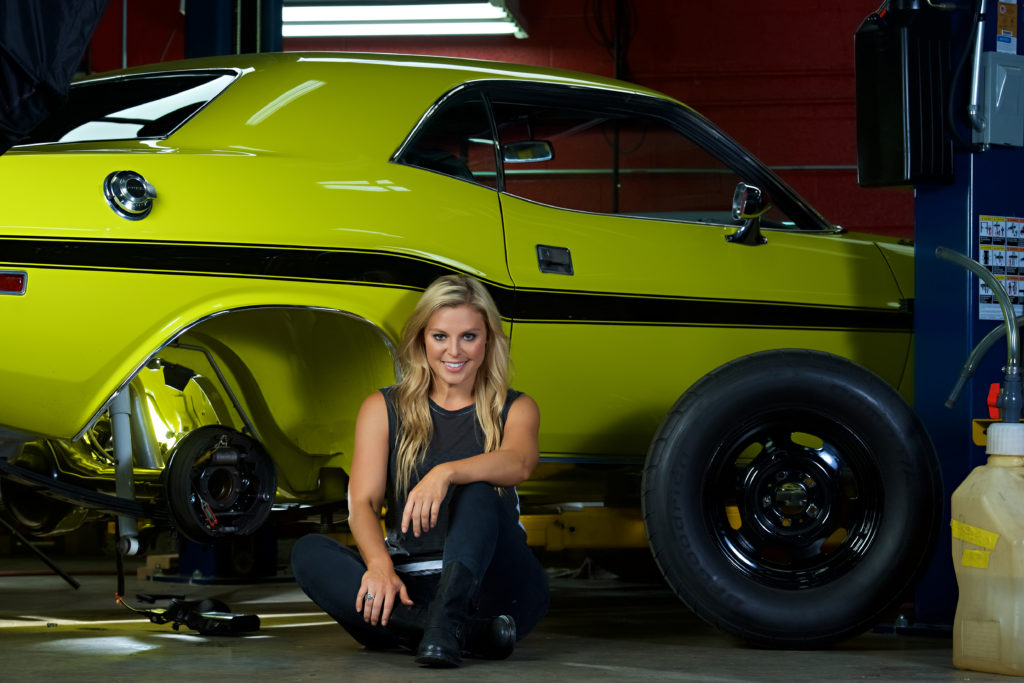
Photo Credit – Robert Bruce
Cover Photo Credit – Emma Sauve
Get your hands on the latest tips and tricks of what it means to be a #GOSS. In this free e-book you will dive into 11 business traits that will help you grow your business!
11 Ways To #BeGossy E-book
FREE DOWNLOAD
Find out more inspiring stories from women worldwide of all industries. Follow us on Instagram @GossMagazine.
website design Credit
© Goss Club Inc. 2024 | all rights reserved |
Inspiring & empowering women worldwide.
© GOSS CLUB INC. 2024 | all rights reserved
Share to: